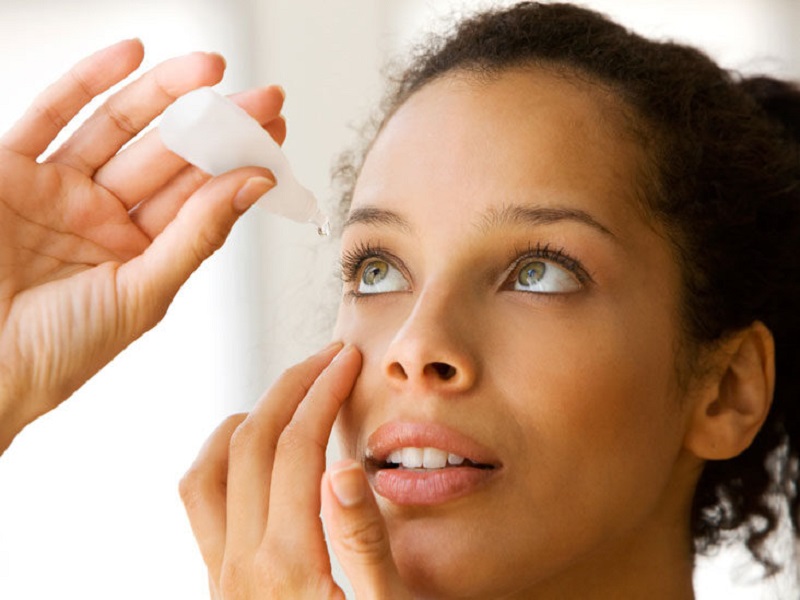
Winter weather may bring cozy moments and festive cheer, but it also presents challenges to your eye health, particularly when it comes to dry eyes. The cold, dry air combined with indoor heating can strip moisture from your eyes, leading to discomfort, irritation, and other dry eye symptoms.
Effective Solutions to Prevent and Treat Dry Eyes This Winter
Fortunately, there are simple yet effective ways to keep your eyes hydrated and healthy throughout the season. We’ll explore 6 practical solutions, from using artificial tears and eye ointments to making lifestyle adjustments, that can help prevent and treat dry eyes this winter.
1. Invest in a Humidifier to Keep the Air in Your Home Moist
The air around you plays a major role in dry eye symptoms. In winter, when indoor heating removes most of the moisture from the air, investing in a humidifier can make a significant difference. Not only can it help prevent dry eyes, but it also improves air quality and helps with respiratory comfort.
As the colder weather creeps in and the days get shorter, humidifiers become essential. They help keep your environment moist and reduce irritation caused by dry indoor air, a common trigger for dry eye symptoms. Here are three good reasons to consider a humidifier this winter:
- Humidifiers help maintain a warm and comfortable indoor environment during cold months.
- Dry indoor air can cause dry skin, nosebleeds, and dry eyes. A humidifier alleviates these issues.
- They also help reduce static electricity and can even improve sleep quality.
2. Use Artificial Tears or Eye Drops as Needed
If you’re struggling with dry eyes, using artificial tears or dry eye drops can provide much-needed relief. These artificial tears eye drops are available over the counter and help lubricate the eyes, reducing discomfort, itching, and irritation.
There are many different brands and types of artificial tears, so it’s important to choose one that suits your specific needs. For more intense or long-lasting moisture, consider using eye ointment. Unlike regular dry eye drops, an eye ointment is thicker, stays longer on the eye’s surface, and is ideal for overnight relief.
If neither artificial tears nor eye ointment helps, it may be time to speak to your eye doctor about additional dry eye treatment options.
3. Drink Plenty of Water
Hydration is key when it comes to managing dry eyes. In the winter, it’s easy to overlook the need for water because we don't feel as thirsty. However, the dry and cold air can dehydrate you quickly, exacerbating dry eye symptoms.
Make it a habit to drink plenty of water throughout the day. You can also hydrate through water-rich foods like watermelon, cucumbers, grapes, broccoli, spinach, soups, and stews. Staying hydrated supports tear production and overall eye comfort.
4. Blink Often to Keep Your Eyes Lubricated
Did you know that most people blink 10–12 times per minute? But when staring at screens, that number drops significantly, a major cause of dry eyes. Blinking is essential for spreading natural tears and artificial tears evenly across your eyes.
When you blink less, your eyes become dry and irritated. Symptoms include blurred vision, stinging, burning, and eye fatigue, all classic dry eye symptoms. Combat this by taking short breaks every 20 minutes, practicing deep breathing, and blinking consciously to rehydrate your eyes.
5. Reduce Screen Time and Take Breaks Often
Extended screen time is one of the leading causes of dry eyes today. Digital devices cause us to blink less, leading to tear evaporation and eye strain. To help prevent dry eye symptoms, limit your screen exposure when possible.
Taking regular breaks and reducing your screen time not only reduces dry eyes but also minimizes neck, shoulder, and back pain. Try the 20-20-20 rule: every 20 minutes, look at something 20 feet away for 20 seconds.
6. Get More Sleep at Night
Poor sleep doesn't just affect your mood and energy; it can also worsen dry eyes. During sleep, your eyes rest and repair, allowing for proper tear production and moisture balance. Without adequate sleep, your body struggles to maintain these functions.
Aim for 7–8 hours of sleep each night. Establish a consistent bedtime routine, limit caffeine intake late in the day, and make time to wind down before bed. These simple changes can significantly reduce dry eye symptoms and support your overall dry eye treatment plan.
By combining humidification, artificial tears, eye ointment, hydration, proper screen habits, and healthy sleep, you can effectively prevent dry eyes this winter. If your symptoms persist, consult an eye care professional for advanced dry eyes treatment options tailored to your needs

